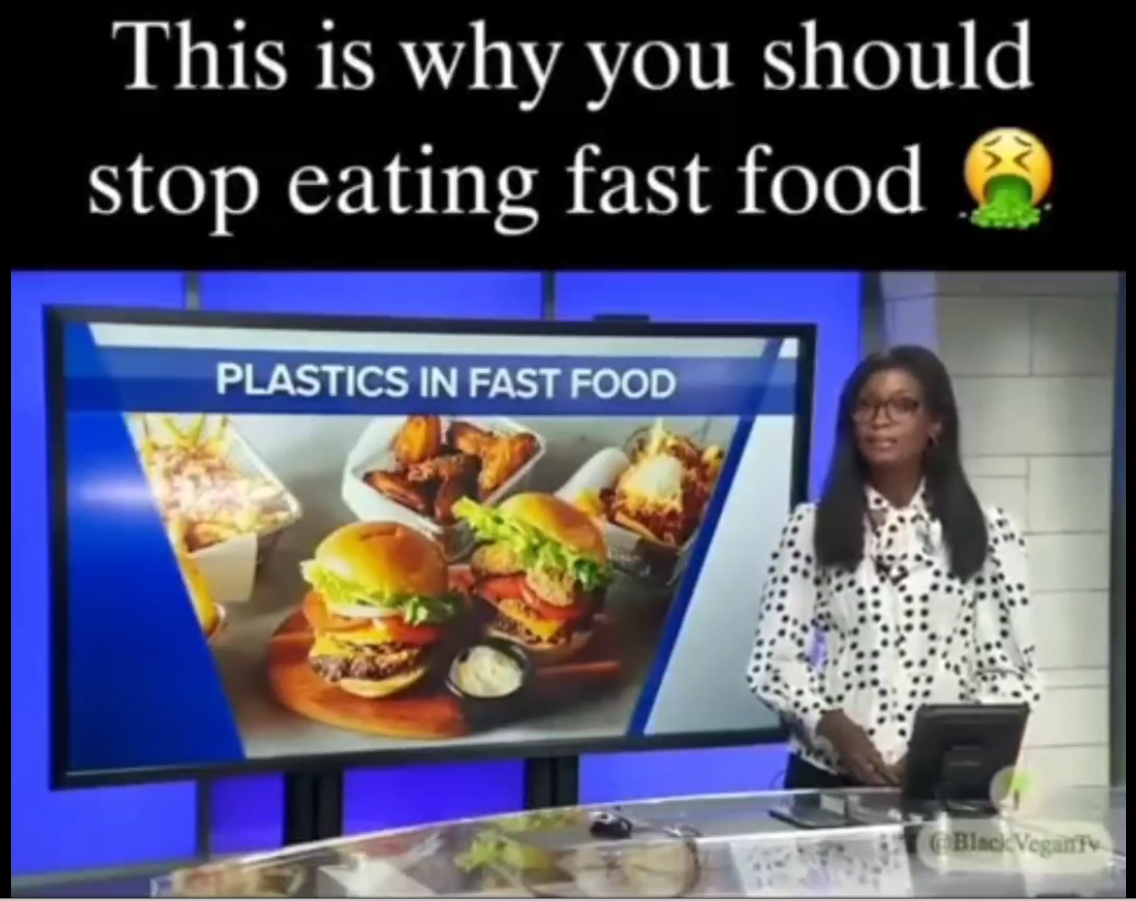Other Concerns
 |
| News Report |
|---|
October 2021
Phthalates Found in Most Fast Foods
Researchers from George Washington University report that toxic chemicals used to make plastics flexible are widespread in fast foods. These chemicals are known to cause birth and reproduction problems, impaired brain development, diabetes, and cancer, among other problems.
 |
| Consumer Reports:
Plastic Products |
|---|
October 2, 2019
Most Plastic Products Contain Potentially Toxic Chemicals, Study Reveals
This article cites a study that finds that the plastics you use every day (water bottles, plastic wrap, storage containers, yogurt containers, canned food liners, coffee lids, even biodegradable containers contain chemicals that can leach into the contents, especially when hot.
"Seventy-four percent of the products they tested were toxic in some way." But every type of plastic showed toxicity in one or more of the tests.
 |
 1 Minute 1 Minute |
|---|
May 25, 2024
This video talks about the use of erythrosine, a chemical used to enhance color, but that also stays in your body to accumulate over time, affecting hormones and brain function. It's found in breakfast cereals, some dairy products, frozen foods, juice drinks, and other foods.
 |
May 27, 2024
This cartoon from 1993 illustrates the trend of large numbers of chemical compounds being added to food products.
 |
November 25, 2024
Citric Acid—Not What You Think
The Citric Acid you see on an ingredients list is nearly always what is known as Modified Citric Acid (MCA). However, MCA is not listed as an ingredient owing to the fact it was in widespread use before the Food Additives Amendment was passed in 1958, and was therefore grandfathered in.
MCA is derived from a black mold, generally grown on a sucrose-based substrate such as corn syrup and beet molassas, and is a far cheaper source of Citric Acid than obtaining it from fruit juices.
See also:
- What You Need To Know About Black Mold and Citric Acid – Includes side effects seen with MCA.
 |
| Fluoride Action Network |
|---|
September 26, 2024
Federal Court Rules That Water Fluoridation Poses an “Unreasonable Risk” to Children
The court found that the fluoridation level considered optimal in the United States poses an “unreasonable risk of reduced IQ” in children.
See also: Sodium Fluoride Affects Our Fertility, Kids’ IQs, and Your Thyroid